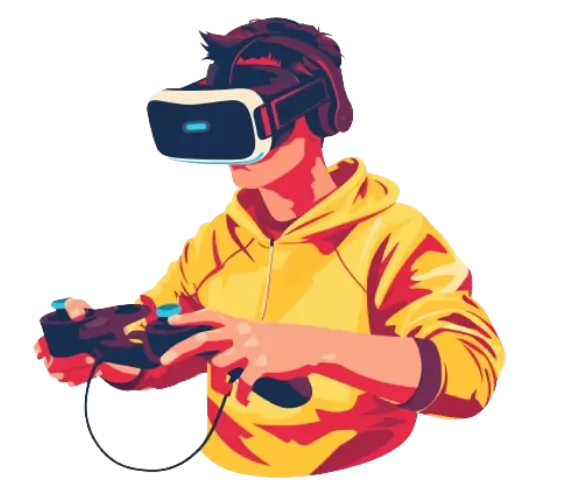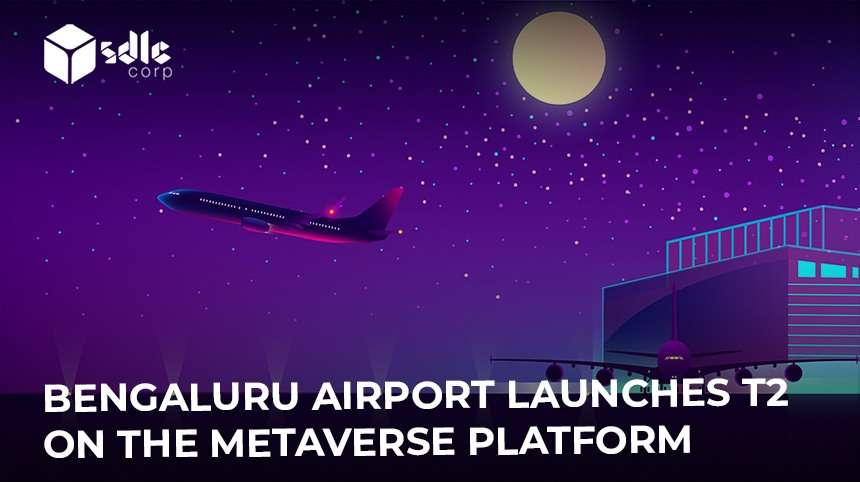Introduction
The integration of Non-Fungible Tokens (NFTs) into the metaverse is transforming the gaming industry by providing new layers of immersion, ownership, and interaction for players. In metaverse games, NFTs are not just a passing trend but the backbone of a digital economy that allows players to own, trade, and monetize in-game assets. This blog will explore how NFTs are creating unique player experiences in metaverse games and how this evolution is influencing the future of Metaverse Game Development.
Understanding NFTs in the Context of Metaverse Games
NFTs are unique digital assets that can represent anything from virtual items, characters, avatars, and even virtual real estate in a metaverse environment. Unlike traditional in-game assets, NFTs provide verifiable ownership of these items on the blockchain. This is revolutionary for Blockchain Game Development as it introduces a system where players have full control over their assets, and those assets can have real-world value.
In metaverse games, the use of NFTs enables a new level of personalization and customization. Players can purchase NFT-based items such as skins, weapons, or even entire virtual properties that are entirely unique to them. This individuality fosters a deeper connection between the player and the game world, enhancing engagement and player retention.
Transform Your Gaming Experience Today!
A Metaverse Game Development Company specializes in creating immersive and engaging metaverse games for online and offline platforms.

True Ownership and Interoperability of NFT Assets
One of the core features of NFTs in metaverse games is the concept of true ownership. In traditional gaming, players can invest time and money into earning in-game assets, but they do not own these assets outside the game’s ecosystem. With NFT Game Development, players can buy, sell, or trade their NFT assets across different platforms and even outside the game’s universe. This cross-platform interoperability is a game-changer for Game Development Companies looking to expand their games’ economies beyond their own ecosystems.
Imagine earning a rare sword in one game and then selling or using that same sword in another. This is now possible with NFTs in the metaverse. For players, this creates a unique experience where their assets have utility beyond a single game, adding real-world value to their virtual achievements.
Enhancing Player Experience Through Customization and Personalization
Customization has always been a major attraction in video games. However, NFTs are pushing this concept further in the metaverse. Players can own their custom skins, avatars, and properties, making the game world feel more personalized and tailored to individual players. This sense of uniqueness allows Metaverse Game Development Companies to create richer and more immersive gaming experiences.
Players no longer need to choose from predefined options; they can now create or purchase NFT-based items that reflect their personality, tastes, and achievements. This level of customization not only adds value to the player’s experience but also opens up avenues for Game Development Services to monetize through the sale of unique, player-created content.
NFT-Based Economies and Play-to-Earn Models
One of the most significant impacts of NFTs in the metaverse is the rise of play-to-earn models. Games in the metaverse often incorporate NFT-based economies, allowing players to earn real money by participating in the game. For instance, players can earn NFTs by completing challenges, participating in events, or even by selling virtual real estate. These NFTs can then be traded on various marketplaces, providing players with financial rewards for their in-game efforts.
This shift towards play-to-earn models is revolutionizing the way Metaverse Game Development Services are structured. Instead of relying solely on in-game purchases or ads, game developers can create sustainable economies where players can actively participate in the value creation process. This also incentivizes long-term engagement, as players are not just playing for entertainment but also for potential financial gains.
The Role of AI in Enhancing NFT and Metaverse Experiences
While NFTs provide ownership and economic value, Artificial Intelligence (AI) enhances the interactive and immersive elements of metaverse games. AI can be used to create smarter, more responsive virtual environments, from dynamic avatars that react to player behavior to NPCs (non-player characters) that offer more engaging experiences. AI Development Services can also be leveraged to ensure better matchmaking, personalized game suggestions, and optimized performance, thereby improving overall player satisfaction.
Incorporating AI into Metaverse Game Development allows for richer, more dynamic environments that feel alive and adaptive to player choices. When combined with NFTs, this creates a deeply immersive world where every decision has long-lasting consequences, and every interaction feels meaningful.
Level Up Your Metaverse Game! Get Expert Development Services Now!
At SDLC Corp, we create immersive metaverse games that engage players on any platform.

Community-Driven Content Creation and NFT Ownership
One of the exciting aspects of NFTs in metaverse games is their potential for community-driven content creation. Game developers can empower players to create their own in-game assets, which can be minted as NFTs. These player-created NFTs can be sold or traded within the game’s ecosystem or even across multiple games. This user-generated content not only enriches the game but also provides additional revenue streams for players and developers alike.
Blockchain Game Development that incorporates community-driven content can create a more engaged player base, as gamers feel a sense of ownership not only over their personal assets but also over the world they are helping to build. This collaborative dynamic can drive the success of Metaverse Game Development Companies as they harness the creativity and enthusiasm of their player communities.
Virtual Real Estate and the Future of In-Game Economies
Virtual real estate is another aspect of NFTs that has gained significant traction in the metaverse. Players can now purchase virtual land in games, build on it, and even monetize their creations. Virtual properties can be rented out for events, used as advertising space, or sold to other players for a profit.
For Game Development Companies, this creates a whole new realm of possibilities for monetization and player engagement. By allowing players to own, build, and trade virtual real estate, developers can create thriving in-game economies that extend beyond the typical microtransaction model. Virtual land ownership also encourages long-term engagement, as players invest not only their time but also their resources into their digital properties.
Explore our affordable Metaverse game development services
We design innovative metaverse games at SDLC Corp that redefine immersive experiences across platforms. Partner with us to craft something truly unforgettable.

The Impact of NFTs on Game Design and Development
The incorporation of NFTs into metaverse games is also influencing how games are designed and developed. Traditional game design focused on creating a closed, controlled environment where all content and assets were managed by the developers. However, NFT Game Development requires a more open approach, where developers create frameworks that allow players to own, trade, and interact with assets in new ways.
This shift towards player ownership and asset interoperability means that Metaverse Game Development Companies must also rethink their business models. Instead of relying on in-game purchases or subscription models, they can now build economies where players are part of the value creation process, contributing to both content and revenue.
Challenges and Opportunities for Metaverse Game Development
While the integration of NFTs into metaverse games opens up numerous opportunities, it also presents certain challenges. Security is a major concern, as blockchain-based assets must be protected from hacking and fraud. Additionally, ensuring that NFTs retain value over time requires careful game design and economic planning.
However, these challenges also present opportunities for innovation. Metaverse Game Development Services can focus on creating secure, scalable platforms that support NFT ownership, trading, and interoperability. By integrating robust security measures and fostering healthy in-game economies, Game Development Services can deliver sustainable, engaging metaverse experiences.
Conclusion: The Future of NFTs in Metaverse Games
The role of NFTs in metaverse games is just beginning to unfold, but the potential is vast. From creating unique player experiences through customization and ownership to fostering new economic models that reward players for their contributions, NFTs are changing the landscape of gaming. For Metaverse Game Development Companies, the integration of NFTs presents an opportunity to innovate, engage players in new ways, and create lasting value within the gaming ecosystem.
As technology continues to evolve, the relationship between NFTs and metaverse games will only grow stronger, offering players unprecedented levels of immersion, control, and financial opportunity. By leveraging Blockchain Game Development, NFT Game Development, and AI Development Services, game developers are not only building games but also digital worlds where players are truly at the center of the experience.



